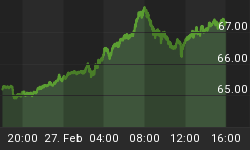The United States, Canada and Europe have all unlocked the doors of rapid COVID testing amid a surge in cases.
Health Canada regulators on Wednesday approved the ID NOW rapid COVID-19 testing device backed by U.S.-based Abbott Laboratories. The test, which produces results in 13 minutes or less from a nasal or throat specimen will be administered by medical professionals, including those at pharmacies, without the need for a laboratory.
The Canadian federal government plans to buy nearly 8 million ID Now tests.
In the United States, Abbott Laboratories has already started shipping 100 million ID NOW tests, with the first 6.5 million out the door. The plan is to ramp up to manufacturing of 50 million tests per month in October at two new U.S. facilities.
The ID Now test isn’t Abbott’s first play in this game. It’s produced 6 tests so far.
In March, it received Emergency Use Authorization for its m2000 diagnostic test. It’s also produced an antigen test for $5, which comes along with an app that employees can share with their employers as a sort of “immunity passport”. That test was authorized in August.
ID Now was actually introduced in 2014 and has been used to rapidly detect influenza A&B, strep A and respiratory syncytial virus (RSV). It was tweaked to be deployed as a rapid COVID test. It is approved by the FDA for use outside of traditional hospitals.
The technology underpinning ID Now is a molecular system. It uses isothermal technology, proprietary enzymes and constant temperature. The administer of the test takes a nose swab, which is then placed into an acidic liquid solution heated to 132.8 degrees F, a temperature that exposes the sample’s viral RNA.
All in all, the device weighs just under 7 pounds and is about the size of a toaster, according to Abbott.
“ID NOW is at the forefront of molecular testing technology because of the isothermal process by which the virus is quickly extracted and magnified at a constant temperature," said John Hackett Jr., Ph.D., divisional vice president of applied research and technology for Abbott's Diagnostics business.
Abbott’s isn’t the only rapid COVID test making inroads, but not all tests are the same.
There are three types of rapid COVID testing: molecular (genetic) tests, antigen tests and antibody tests. Molecular, or genetic tests are the most accurate. Antibody tests are the least accurate. And while this is still a very crowded space, ID Now at least has the advantage of being molecular, though it’s not alone. Other molecular tests on the market include Roche’s Cobas, Cue Health’s Cue COVID-19 Test, Xpert Xpress by Cepheid, and Mesa Biotech’s Accula, according to Health Line.
Related: Dead Malls Could Be Amazon’s Next Target
Testing has been a political football, particularly in Western countries--and not just in the United States, where Trump even proposed that we “slow testing down” to make the numbers look better.
But science has attempted to push things forward despite political interference on all sides. Rapid COVID testing, even though it is perhaps not as fully accurate as longer laboratory testing, is believed by many experts to be our only chance of getting out of this quickly and getting back to normal. Most importantly, it will aid in quarantine efforts to halt the spread.
There are hopes that this form of rapid testing en masse could help reopen schools, and even get the travel and tourism industries back on track at a time when massive layoffs, most recently announced at Disney, are severely threatening employment, with a U.S. extension of the ban on cruises through October promising to add to the pain.
Broad availability of accurate, rapid testing could be a game-changer. In just one example, American Airlines is hoping to allow preflight COVID testing in October in Miami and Dallas that would allow at least passengers heading to Hawaii to avoid mandatory quarantine.
This “could be a game-changer, not just for tourism, but also for other key sectors of the economy that have been negatively impacted by the ongoing pandemic,” said Audrey Marks, Jamaica’s ambassador to the United States.
By Fred Dunkley for Safehaven.com
More Top Reads From Safehaven.com:
















